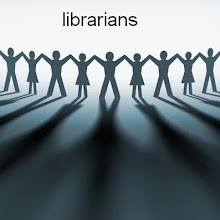You Have Rights! Librarians and Unions
Don't miss this audio conference on Tuesday April 25, 3pm ET, noon PT
Site License: $68.00 cdn. + gst
The majority of Canadian librarians are represented by unions but they are often unfamiliar with the collective bargaining process and what, exactly, their rights are as union members. Other librarians may be interested in becoming negotiators at the table but need to learn the practices and pitfalls of negotiating as well as the benefits to be gained by negotiating for their own group. Find out more about what is needed to improve your working conditions and benefits in the negotiating process.
The Benefits
Role of unions/collective bargaining and their benefits to librarians in defining working conditions
1. How to define the key items for collective bargaining for librarians such as ranks, pay scales, promotion/ tenure, leaves and other benefits
2. Librarians at the negotiating table: find out where do you fit? What do you do to get what you want?
3. Who Should Participate?
Academic, public and special librarians are most likely to need the expertise this session is providing.
Key Topics You Will Explore
-Key items for collective bargaining for librarians
-What do you do to become a negotiator, where can you train?
-Collective agreements; positives and pitfalls in being part of one: what are the disadvantages of being a librarian in the bargaining process
-Bargaining strategies for librarians in the new millenia; looking ahead to the future
Linda Winkler has been a librarian at the University of Regina since 1975 and has been involved in negotiations at the University for three collective agreements. From 1991 to 1994 she was a member, and later Chair, of the Librarians' Committee at the Canadian Association of University Teachers (CAUT), the parent organization for the University's union located in Ottawa. During this time Linda took training in collective bargaining with CAUT. In 2005, she was the librarians' representative to the advisory committee for the university's negotiating team in the current round of negotiations at the University of Regina.
source: reproduced from the Education Institute
Site License: $68.00 cdn. + gst
The majority of Canadian librarians are represented by unions but they are often unfamiliar with the collective bargaining process and what, exactly, their rights are as union members. Other librarians may be interested in becoming negotiators at the table but need to learn the practices and pitfalls of negotiating as well as the benefits to be gained by negotiating for their own group. Find out more about what is needed to improve your working conditions and benefits in the negotiating process.
The Benefits
Role of unions/collective bargaining and their benefits to librarians in defining working conditions
1. How to define the key items for collective bargaining for librarians such as ranks, pay scales, promotion/ tenure, leaves and other benefits
2. Librarians at the negotiating table: find out where do you fit? What do you do to get what you want?
3. Who Should Participate?
Academic, public and special librarians are most likely to need the expertise this session is providing.
Key Topics You Will Explore
-Key items for collective bargaining for librarians
-What do you do to become a negotiator, where can you train?
-Collective agreements; positives and pitfalls in being part of one: what are the disadvantages of being a librarian in the bargaining process
-Bargaining strategies for librarians in the new millenia; looking ahead to the future
Linda Winkler has been a librarian at the University of Regina since 1975 and has been involved in negotiations at the University for three collective agreements. From 1991 to 1994 she was a member, and later Chair, of the Librarians' Committee at the Canadian Association of University Teachers (CAUT), the parent organization for the University's union located in Ottawa. During this time Linda took training in collective bargaining with CAUT. In 2005, she was the librarians' representative to the advisory committee for the university's negotiating team in the current round of negotiations at the University of Regina.
source: reproduced from the Education Institute

0 Comments:
Post a Comment
<< Home